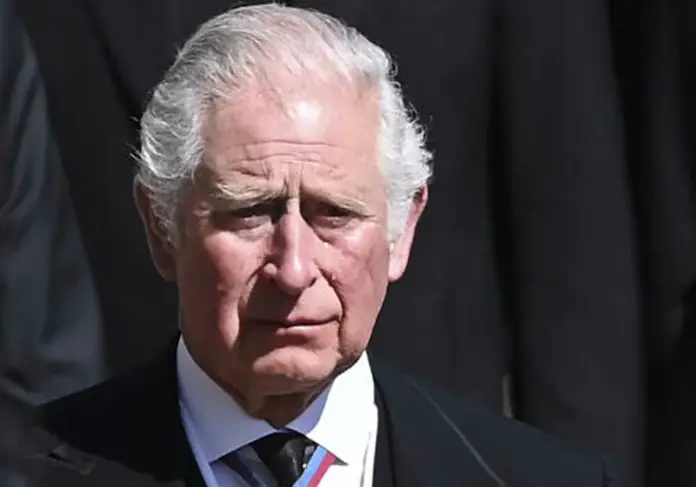By Abdul Rafay Afzal
The ascension of King Charles to the throne poses an abundance of prospects and predicaments for the Commonwealth and its constituents, Pakistan included. As the global political landscape continues to evolve, examining the complex historical connections and contemporary advancements between the United Kingdom and Pakistan is imperative. It is important to reflect on measures that can bolster and broaden the bond between the two nations. In these times, drawing insights from Barbados’ experiences and envisioning a renewed purpose and direction for the Commonwealth is imperative. As a dynamic and all-encompassing forum, the Commonwealth must strive to foster a sense of unity and collaboration while championing common ideals, objectives, and ambitions.
The media significantly impacts how the public views and feels about the Commonwealth. The Commonwealth’s media coverage is characterized by a wide range of quality and diversity, frequently mirroring the partialities and concerns of their particular viewers and stakeholders. The potential consequences of such actions could prove detrimental to the overarching objectives of diplomacy, collaboration, and amicable comprehension, while simultaneously reinforcing preconceived notions and misconceptions. It is essential to foster media literacy and uphold professional norms while stimulating intercontinental partnerships and interactions between journalists and media establishments to enhance the standard and the dialogue. Cultivating more sophisticated and equitable journalism on matters concerning the Commonwealth could promote intercultural dialogue and comprehension.
The significance of the youth’s outlook in molding the destiny of the Commonwealth cannot be overstated. As the world grapples with complex geopolitical issues, the next generation of leaders and stakeholders must actively promote intergenerational dialogue and cooperation. Young people are vested in addressing the challenges and opportunities facing organizations, and their voices must be heard to achieve meaningful progress. The Commonwealth Youth Council and the Commonwealth Youth Forum have emerged as significant players in youth-led initiatives and campaigns. These organizations have been instrumental in advancing the cause of youth empowerment and participation while also advocating the rights and interests of young people.
The incorporation of a gender perspective is of utmost importance in tackling the gender-related aspects of Commonwealth affairs, as well as advancing the cause of gender parity and female empowerment. The Commonwealth has emerged as a trailblazer in advancing the cause of gender equality and mainstreaming, as evidenced by its proactive measures such as the Commonwealth Gender Plan of Action and the Commonwealth Women’s Forum. Despite some progress, the gender gap in leadership, education, health, and employment remains a persistent challenge. Moreover, the complex and interconnected nature of discrimination and inequality women and girls face demands further attention and action.
The Commonwealth issues are significantly influenced by the media, youth, and gender, and their impact cannot be underestimated. All stakeholders must acknowledge and support these key players in shaping the geopolitical landscape. The Commonwealth has the potential to bolster its significance and influence by prioritizing the advancement of media literacy, youth empowerment, and gender equality. Such efforts would not only serve to fortify the organization’s standing but also foster a more equitable, sustainable, and fair global community.
The coronation of King Charles sparked discussion and thought regarding the trajectory of the Commonwealth and its capacity to foster friendly relations, collaboration, and shared comprehension among its member nations. Pakistan’s delicate geopolitical and economic position in the region, coupled with its rich history and cultural ties with the UK, renders this development of particular significance. Throughout this geopolitical analysis, we have explored Pakistan’s broad contributions and potential as a crucial member of the Commonwealth. We have also scrutinized the critical function and responsibility of the media in shaping public perceptions and attitudes toward this organization. Additionally, we have explored the youth perspective on the Commonwealth and the gender dimensions of the pertinent issues, as well as other emerging potential challenges.
Given the current state of affairs, fostering additional discourse and interaction regarding matters about the Commonwealth is important. Extending an invitation for input and opinions from our esteemed readership is equally crucial. As a dynamic and adaptive entity, the Commonwealth requires the concerted engagement and cooperation of all its contributed parties, encompassing governmental bodies, civic organizations, press outlets, younger generations, and female demographics, to fully actualize its capacity as a catalyst for constructive transformation and advancement.
As the Commonwealth enters a new chapter under the reign of King Charles, we must embrace the prospects and obstacles that await us with a mindset of openness, broadness, and innovation. To achieve a more harmonious and just global community, we must honor the historical foundations that have brought us to this point while simultaneously forging a fresh path that is inclusive of all stakeholders’ diverse perspectives and objectives. Doing so can achieve a future characterized by greater stability, prosperity, and fairness for all individuals and nations.






